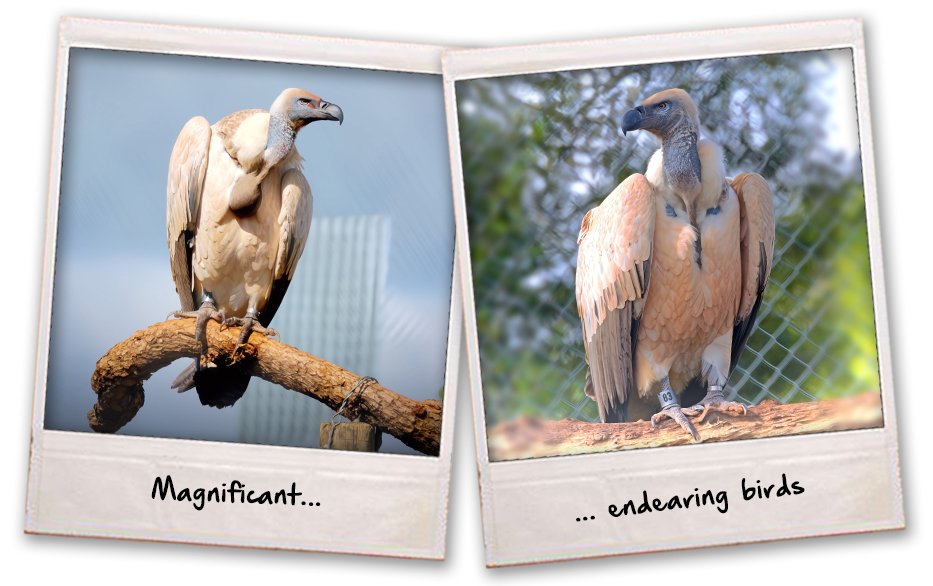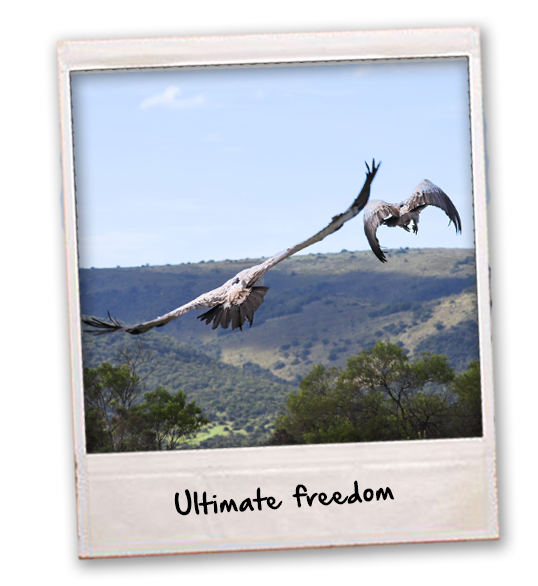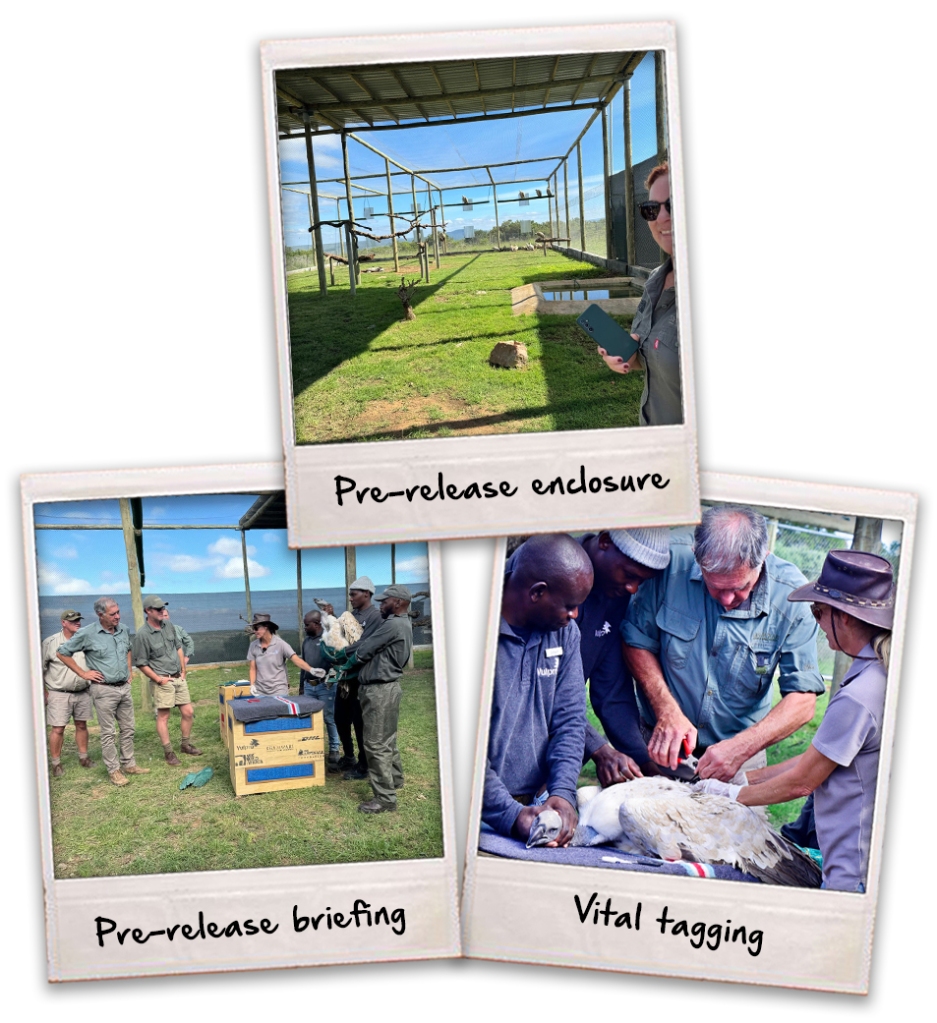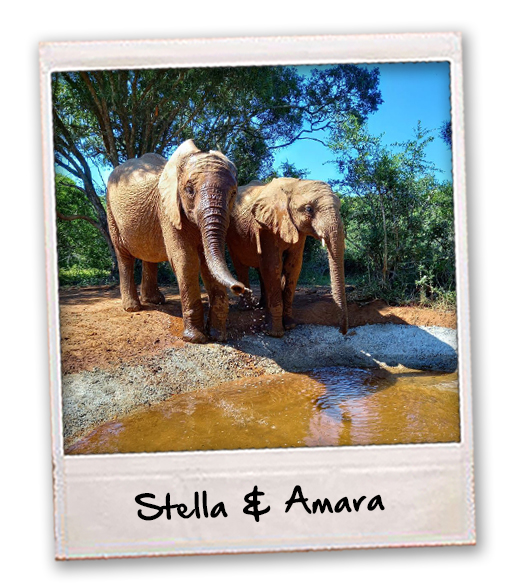Sue Olsen here… I hope OATOKE fans won’t mind me hijacking Dave’s blog today but I simply have to share some of the highlights of my recent visit to Shamwari Private Reserve in South Africa.
OAT are proud supporters of Shamwari’s wildlife rehabilitation work which ranges from dealing with injured and orphaned elephants, rhinos, giraffe, hippos and in fact any species that are brought to the centre for veterinary treatment, care, rehabilitation and rewilding. We took the opportunity to check in on other wildlife species currently in their care whilst we were there but this particular trip was primarily to learn about a new vulture programme which Shamwari is now operating in conjunction with Vulpro,
Interesting Observations…
I have to admit that I knew very little about vultures before our visit but having learnt so much more during my visit and having met them up close and personal, I can honestly say I have fallen for these beautiful birds. They are incredibly relaxed, kind natured and are very inclusive. For example, when new rescued birds are introduced into enclosures for the first time they are welcomed by the current residents with open arms, or should I say wings? Even when Vulpro’s expert carers venture into the enclosures to capture one or two of them at a time for their pre-release procedures, the remaining vultures show no signs of aggression at all. As we all know vultures feed off of carcasses which of course conjures up thoughts of rotting flesh and its associated smell, and in turn you would think this transferred to the birds. However, this is not the case at all and in fact vultures are incredibly clean birds who wash themselves after they have fished feeding. The rehabilitation enclosures all have swimming pools and the birds use them vigorously. These gentle birds also mate for life, so yet another endearing feature.
Endagered species
The bad news is that 7 of the 9 species of African vultures are now officially listed as either vulnerable, endangered or critically endangered. And, one of the remaining two, the Egyptian vulture, is listed as extinct as a breeding species. These statistics are tragic for the species itself but also for the ecosystem in which they play a critical part. The main factors contributing to their death and decline include collisions with power lines and wind turbines, poisoning from feeding on carcasses of farm animals treated with chemicals / drugs, and the perceived value of their body parts for traditional medicine. Poachers also poison the carcasses of wildlife they have killed for their horns / tusks etc as circling vultures is one of the key indicators that anti-poaching teams respond to when trying to locate crime scenes. Although Vulpro are continuously working on these issues, sadly none of these threats are going away anytime soon. Therefore, it’s important that attempts should be made to attend to as many injured birds as possible, so they can be rehabilitated and eventually released in order to maintain their numbers in the wild.
At Shamwari the veterinary and rehabilitation team retrieve and respond to all reports of injured vultures and take them through a staged rehabilitation process. When they are well enough, they are transferred to pre-release enclosures until they are ready to be released back into the wild. Released birds are tagged and fitted with solar powered transmitters so that their progress and survival can be monitored.
Jonathan (my husband and fellow trustee) and I were privileged to have been involved in the release of two such rehabilitated vultures during our visit. Such an amazing and emotional feeling.
Vultures that are severely injured, meaning they would not survive if released back into the wild, play a huge part in the conservation of the species in Vulpro’s project. They are placed in a large enclosure, meticulously customised specifically to allow for their disabilities and very good quality of life. They are free to find partners and embark on a natural breeding process and their captive bred youngsters are eventually released into the wild. This again helps with keeping vulture numbers up and thus contributes to fending off their extinction. Such a wonderful holistic project and one that OAT will certainly be supporting in the future.
Elephants
Stella and Amara came to Shamwari 6 years ago as orphaned baby elephants. Initially they required 24-hour care, including regular bottle feeding, intensive medical care and a huge amount of emotional support. In April this year we were thrilled to hear that they had entered the final stage of their rehabilitation and were successfully integrated into an existing wild herd within the expansive Shamwari reserve. They will continue to be monitored for some time to come under the expert guidance of Shamwari’s wildife team until everyone is sure that they are well and truly established and living wild once again.
Lions
During our visit, we also took the opportunity to check in on the resident lions at the Shamwari /Born Free centres. All of these lions are very dear to our hearts, especially those who OAT have been personally involved with. These big cats were all rescued from either zoos, circuses or private ownerships and now, thanks to the Born Free Foundation and Shamwari, they are living out their lives in their ancestral home. Sadly they need to remain in captivity as they simply wouldn’t survive in the wild because their lives have been so compromised. However, they are now in beautiful large enclosures, filled with natural enrichment and will receive 5 star care for the rest of their lives. It was particularly lovely to see some of the residents that OAT and friends of OAT have invested in over the years.
Leopards
We were scheduled to see recently rescued leopards arrive at Shamwari but sadly, due to delays in their transportation, we missed them by a couple of days. However I am pleased to report that Alda (13) and her daughter Ginny (8) arrived safely and are now settling nicely in their new enclosure. They were both confiscated from an awful Polish exotic cat breeding centre and transferred to an interim sanctuary in Belgium, Naturehulpcentrum NHC, where they have spent a number of years being rehabilitated and awaiting their forever home. Born Free and Shamwari came to their rescue and were able to offer them a home back in Africa where they belong and OAT are very proud to have played a part in this rescue/ rehoming mission. We have committed to contributing to the costs of their lifetime care and we look forward to seeing how they progress over the coming years.
Below is a link to some lovely footage of the girls settling in at Shamwari:
https://www.facebook.com/share/r/quuwVcQtKyim5BSG/?mibextid=UalRPS
Thats all from me for now, no doubt the next blog will be from our OAT OKE again when he ventures off to visit more OAT supported projects later in the year.









